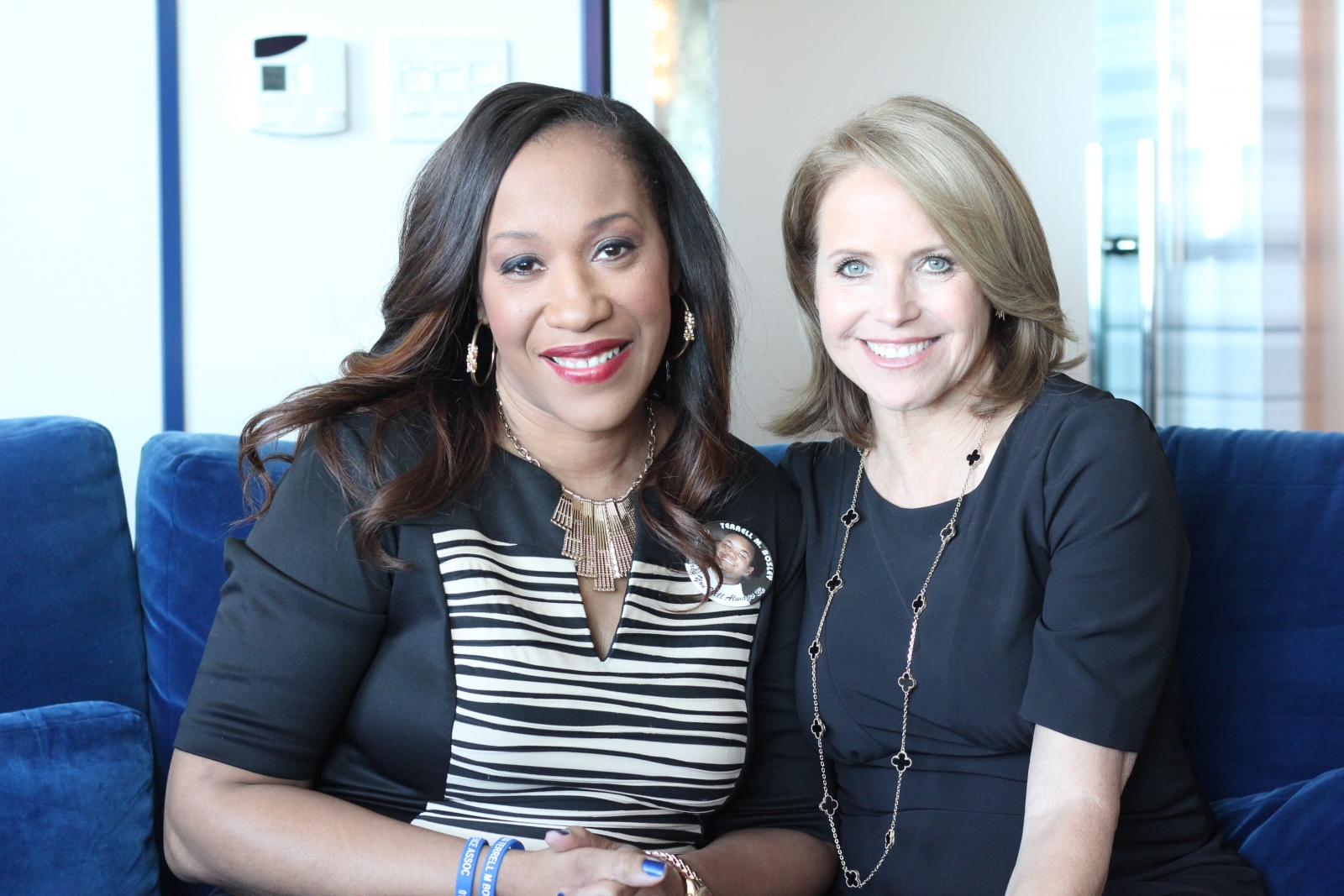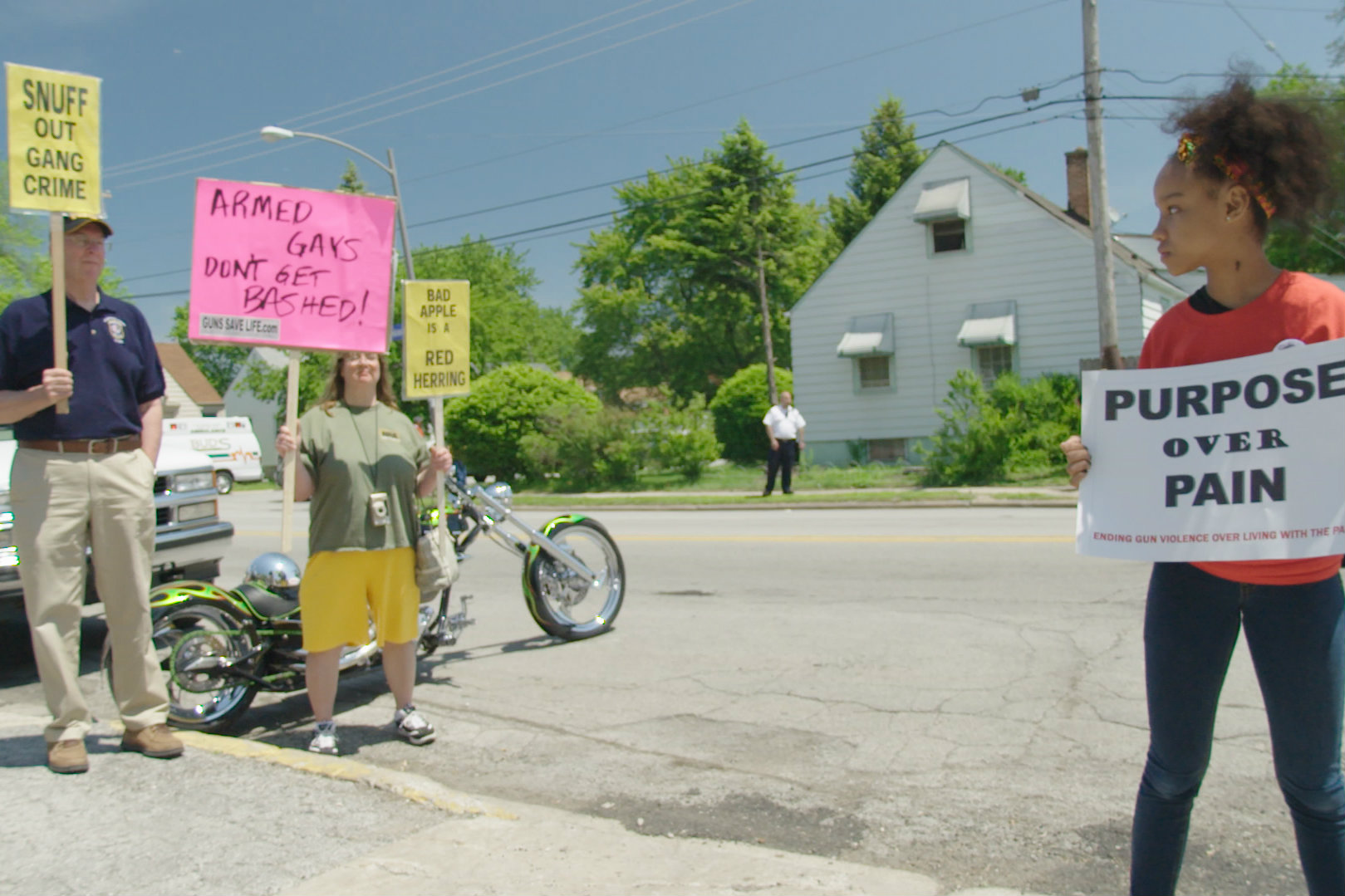In 2006, as mothers do, Pamela Bosley told her son Terrell to be careful before he left the house. As sons do, Terrell told his mother not to worry so much and went on his way. Later that day the 18-year-old was gunned down on the steps of his Far South Side church. His mother says he was moving a drum set into the building for choir practice.
His murder remains unsolved.
Whether a shooting strikes a scenic college town like Isla Vista, California, an affluent white community like Newtown, Connecticut, or a troubled neighborhood on Chicago’s South or West sides, parents like Bosley share common ground.
“We all suffer the same pain of losing a child,” Bosley says. “We’re going through the same thing. No matter who they are, where they are, where they live—none of our children should be shot.”
Bosley and other grieving Chicago parents, living windows into a gun violence debate obscured by political rhetoric and fear, are featured in a new documentary executive produced and narrated by Katie Couric, “Under the Gun,” which airs for free online and on television at 7 p.m. May 15 on EPIX. The movie makes the point that when it comes to gun violence, the media, lawmakers and general public tend to view victims differently depending on how they look and what community they come from.
Couric was in town last Thursday for a screening of “Under the Gun” at the Chicago Cultural Center. A few hours before the event, the veteran journalist and Bosley, the activist mother from Roseland, sat together on a couch in Couric’s swanky hotel suite and discussed the special role Chicago plays in the film—and how some communities get left out of the national debate about gun violence.
“In inner cities across America there are these shootings, and I think they don’t get as much attention,” Couric says. “And I think there probably is a racial component to that and also… these crimes aren’t carried out in the sensational way where it’s in a movie theater or elementary school, but they are just on the streets and it’s a steady drip of violence.”
Most scenes in “Under the Gun” take viewers to white middle-class settings rocked by mass shootings, not to cities where some communities of color fear violence on a daily basis. But Chicago powerfully enters the conversation when Couric visits Purpose Over Pain, a local organization Bosley co-founded that advocates for safe communities and supports parents whose children have died from gun violence.
“Gun violence is everywhere, it’s a national issue, but you got to talk about the inner city too,” says Bosley, who wears a button with her dead son’s face pinned on her dress. “In the inner city we have shootings every single day; we have over a thousand people who have been shot in this city and this is only May.”
Couric says “Under the Gun” puts a human face on statistics that get repeated time and time again about shootings in Chicago that are often mentioned “with the added insult of being called gang related when they're not, as a way to marginalize or minimize the victims in those communities.”
“It’s just wrong,” Couric says.
The film shows how families grieve and look for answers in the aftermath of losing a loved one to gun violence. “Under the Gun” also shows how parents like Bosley join forces to push for concrete solutions, whether that means lobbying lawmakers, knocking on voters’ doors, or protesting outside of gun stores whose wares end up in the hands of shooters on Chicago’s streets. The Chicago area’s most notorious gun store, Chuck's Gun Shop, appears in scenes showing a protest last year outside the Riverdale, Illinois, business. A report from the city says that nearly one in five guns recovered from crimes between 2009 and 2013 originated at Chuck's and three other local gun dealers just outside Chicago.
Talking with Bosley before the film screening last Thursday, Couric questioned why there isn’t enough local political will to crack down on the store.

“What about the federal authorities, or state officials, or law enforcement? Why can't they go to Chuck’s and clamp down on them and the fact that they sell dozens of guns legally to people who go out and sell them from the back of their car?” Couric says.
“I don’t think nobody really cares,” says Bosley, “because the guns end up in neighborhoods like mine.”
Federal law makes it all but impossible to sue gun dealers and manufacturers in connection to guns that are resold illegally or misused. Last year, Bosley and another mother who lost a child to gun violence filed suit against Riverdale and two other suburban governments they accused of violating their civil rights by failing to regulate gun shops. A judge dismissed the case in March. Despite the setback, Bosley vows to keep fighting to keep illegal guns off Chicago’s streets.
“We had so much bloodshed this winter, I’m so afraid for the summer,” Bosley says. “I have a fear of losing my other two sons.”
Bosley recently heard news of a mother who lost her child to gun violence committing suicide, something she tried twice in the aftermath of her own son’s murder.
“That’s the part people miss,” Bosley says. “When the cameras are gone, the pain is still there and the family is still suffering.”
A day after she spoke with Chicago, Bosley and other mothers who have lost children to gun violence called for Chicagoans to put their guns down during the upcoming Mother's Day weekend.
They didn’t get what they asked for.
Last week, at least 50 people were shot and eight died between Friday afternoon and early Monday, making last weekend Chicago's most violent weekend since the end of September, according to the Tribune.
As Father Michael Pfleger, of Saint Sabina Church in Auburn Gresham, says in Couric’s film: "We talk about five people or six people shot somewhere in a mass shooting in a mall or in Fort Hood, and the whole country is outraged—as they should be. But that happens on a night in Chicago and they call it another night in Chicago.”
Bosley says understanding and framing the gun violence debate in a proper light is important, but the next step for anybody truly concerned with the issue is at the ballot box, where they should vote for leaders who share their values about “common sense gun laws.”



